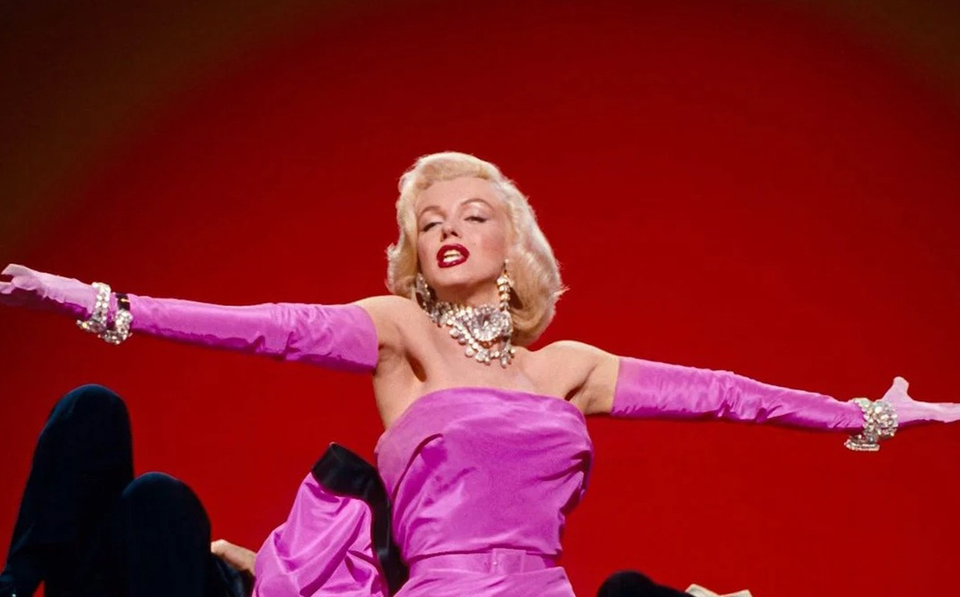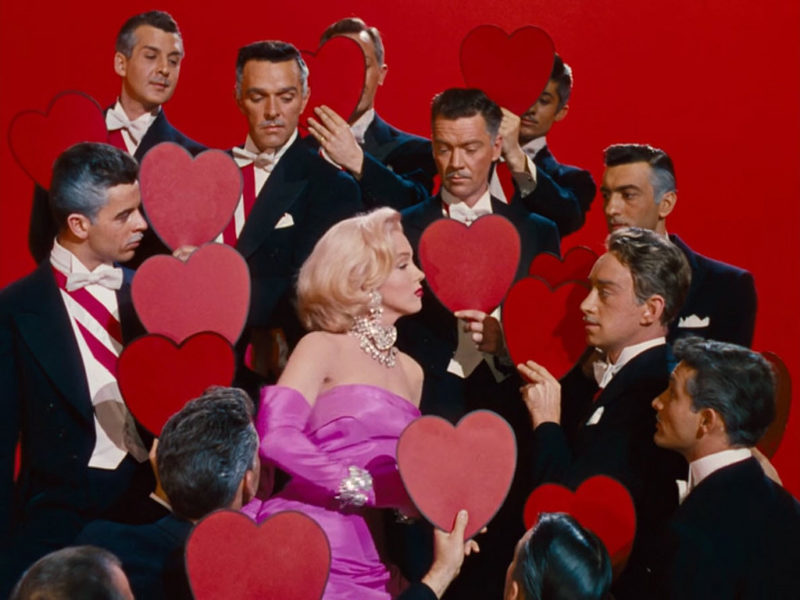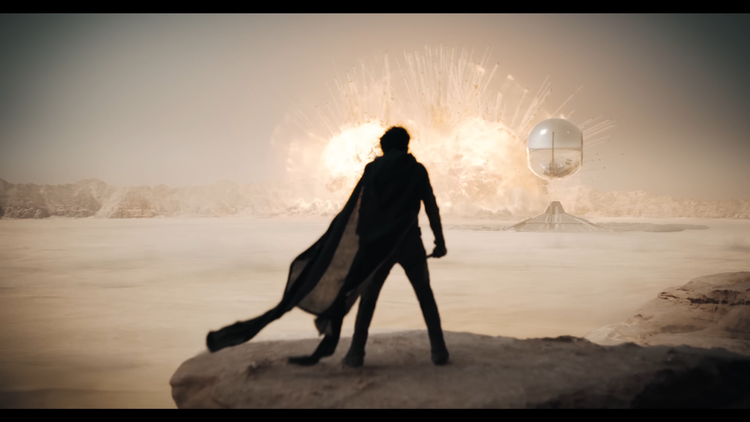Do gentlemen really prefer blondes? And what’s the point of reading writing by humans?

This is my Weekly Roundup! - March 31, 2024
Welcome to Weekly Roundup!, where we explore captivating films, books, and stories that grabbed our attention this week.
Watches of the week
- Gentlemen Prefer Blondes (1953) by Howard Hawks - 4/5
Gentlemen Prefer Blondes
Diamonds are a girl's best friend.

I think this film had a bad influence on V. We've all heard that phrase before—"Diamonds are a girl's best friend." Now, I catch her humming the song as she goes about her day. Something tells me our bank account will see a withdrawal soon.
To a plebeian like myself, the phrase's origins were unknown. First seen on Broadway in Gentlemen Prefer Blondes (1949)—later immortalized by Marilyn Monroe in the 1953 film adaptation.
A great musical with excellent comedic timing and charm that shows Monroe's character, Lorelei Lee, is more than the blonde gold-digger she pretends to be:
Esmond Sr.: Have you got the nerve to tell me you don't want to marry my son for his money?
Lorelei Lee: It's true.
Esmond Sr.: Then what do you want to marry him for?
Lorelei Lee: I want to marry him for YOUR money.

Jane Russell, on the other hand, shines as the no-nonsense Dorothy, whose dry wit and loyalty help temper Lorelei's whimsical escapades. Together, they are a dynamic duo on screen, producing line after memorable line while dazzling us with glittering costumes and lavish sets.
Lorelei Lee: (Lorelei is holding a tiara) How do you put it around your neck?
Dorothy Shaw: You don't, honey, it goes on your head!
Lorelei Lee: You must think I was born yesterday.
Dorothy Shaw: Well, sometimes there's just no other possible explanation.
Whether you're a fan of classic cinema, Marilyn Monroe, or simply seeking quality, old-fashioned entertainment, this film is worth watching and is sure to put a smile on your face.
Reads of the week
- What’s the point of reading writing by humans? by Jay Caspian Kang for The New Yorker - March 31, 2023
What’s the point of reading writing by humans?
It's A.I.'s world; we're just living in it.
In a dystopian future, as A.I. writers advance exponentially, they could usurp human writers' dominance. With lightning-fast processing power and unparalleled data analysis, A.I. algorithms would flood markets with captivating content, surpassing human creativity and emotional depth. As A.I. blurs the line between machine-generated and human-crafted writing, it could fundamentally reshape industries reliant on written communication, sparking a dramatic struggle for relevance in a world where machines reign supreme.
At least that's what an A.I. says itself. The entire paragraph above was taken straight from ChatGPT, and, humbly, it's better than me. To its credit, it really did not want to write a paragraph extolling A.I. writers—instead providing clear examples of its limitations and praising the aspects human writers bring to the table—until I perfected my prompt.

A.I. chatbots, like ChatGPT, are examples of one use case of LLMs (Large-Language Models). These LLMs are trained on vast amounts of text from all over the internet, including Wikipedia, Reddit, and your favorite novels. They function by feeding it a string of text and, based on the provided text, predict the logical next word(s). When utilized through a chatbot, they can answer your questions like Google, create recipes (no guarantee they'll be good recipes), and even generate whole passages of text.
Maybe this sounds quite technical, but do we not operate in a similar way? This is the opinion of author Jay Caspian Kang:
“Writing, after all, is an outgrowth of reading.…
I’ve come to realize that I function like a more curated but less efficient version of GPT. My sentences are not generated by A.I., but they are largely the synthesis of my favorite authors.”
I see it already in my own, very limited work. The first drafts that V reads often result in the comment that my writing sounds "old"—probably due to the list of classic literature she compiled that I'm going through.
If we take the preposition we operate in a similar, albeit less efficient, way as A.I., then what is the point of reading writing by humans? If a machine could generate the next NYT Best Seller, would it be worth a read? For fiction and creative writing, I think not. What makes us take the time to read, listen to music, and enjoy any form of art is the fact that a human did it. Knowing Jack London actually spent time working in the Klondike Gold Rush, malnourished and developing scurvy, makes Call of the Wild and White Fang all the more potent. Or in art, knowing a human took the time to carefully place all the single dots of paint that turn a blank canvas into a relaxing scene of a park off the Seine River.

If the above image were generated in an instant by a computer, printed out, and hung in a museum, my hope is that it would not draw the same crowd.
Reader Recommendations
Now, I want to hear from you! What movies, books, or articles captured your attention this week? Share your top picks in the comments below; your insights might just lead someone to their next favorite film or book.
Stay tuned until next week!




Comments ()